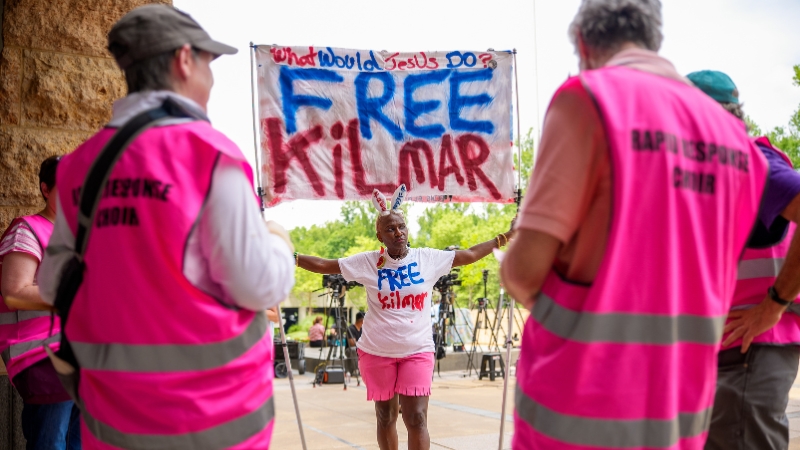
WEF’ers discuss what a digital payment future will look like, and how the ‘Fauci Flu’ has aided in actualizing it.
While speaking at the World Economic Forum’s (WEF) ‘Special Meeting on Global Collaboration, Growth and Energy Development‘ Sunday, Central Bank of Bahrain governor Khalid Humaidan told the ‘Open Forum: The Digital Currencies’ Opportunity in the Middle East‘ panel that the goal of a central bank digital currency (CBDC) is to replace cash with digital payments, and that the Covid pandemic was a convenient helper toward that goal.
“I think the transition to fully digital [currency] is not going to be a stretch, people are used to it, people are engaged in it, and circumstances that help is adoption rates increased because of Covid,” Humaidan said.
“There’s less use of cash […] The transition to fully digital is not going to be a stretch […] People are used to it […] Its adoption rates increased because of COVID […] There is very little resistance”: Central Bank of Bahrain Governor Khalid Humaidan to the WEF on CBDC pic.twitter.com/zB7nJAi48G
— Tim Hinchliffe (@TimHinchliffe) April 29, 2024
Humaidan also stated that the general public is not resisting the CBDC.
“This is where contactless [payment] started to become something of a necessity, something of a safety, something of a requirement, and because of that there is very little resistance, trust is already there,” the central banker said.
He also talked about how central banks control the issuance of cash, managing the supply via interest rates, and that the effort is largely controlled by the private sector. The banker stated that it is likely a CBDC will be no different, in the fact that private central banks will still dominate the system.
Most ominously, the man said that he hopes cash will go away completely.
“At some point in time hopefully we’ll be able to be 100 percent digital,” he said.
“We’re probably going to stop calling it central bank digital currency [CBDC]. It’s going to be a digital form of cash, and at some point in time hopefully we will be able to be 100% digital”: Central Bank of Bahrain Governor Khalid Humaidan to the WEF https://t.co/Pspr0M1Uuq pic.twitter.com/N5aOkCpzh1
— Tim Hinchliffe (@TimHinchliffe) April 29, 2024
Getting rid of cash will prohibit the anonymous transfer of funds, a premise already admitted by the financial sector.
Speaking at the Bank for International Settlements (BIS) Innovation Summit in March 2023, European Central Bank (ECB) president Christine Lagarde said that a CBDC will not be private or anonymous, yet was reassuring that cash will stick around, for the purpose of anonymity.
“A digital currency is an alternative, is another means of payment and will not provide exactly the same level of privacy and anonymity as cash, but will be pretty close in terms of complete neutrality in relation to the data,” she said.
“Is it [digital euro] going to be as private as cash? No. A digital currency will never be as anonymous and as protecting of privacy in many respects as cash, which is why cash will always be around”: Christine Lagarde, BIS Innovation Summit, March 2023 #CBDC pic.twitter.com/BLMVOPax6a
— Tim Hinchliffe (@TimHinchliffe) April 11, 2023
Cornell University professor Eswar Prasad spoke at the WEF’s Annual Meeting of the New Champions or ‘Summer Davos’ in Tianjing, China where he spoke of a dark future.
“You could have, as I argue in my book, potentially a better, or some people may say a darker world where the government decides that units of central bank money can be used to purchase some things but not other things that it deems less desirable,” Prasad said. “And that is very powerful with the use of a CBDC, and I think also extremely dangerous with central banks.”
“You could have a potentially […] darker world where the government decides that [CBDC] can be used to purchase some things, but not other things that it deems less desirable like say ammunition, or drugs, or pornography, or something of the sort”: Eswar Prasad, WEF #AMNC23 pic.twitter.com/KkWgaEWAR5
— Tim Hinchliffe (@TimHinchliffe) June 28, 2023
Mexican Bank Governor, Agustín Carstens, made clear during an International Monetary Fund (IMF) meeting back in October 2020 that CBDCs can have their use limited to purchases and merchants that the issuing institution deems fit.
Agustín Carstens, general manager of the Bank for International Settlements—the central bank of central banks—admits that CBDC will grant central bankers “absolute control” over how it can be used, and the technology to be able to centrally enforce that.
Not “up to date” with… pic.twitter.com/C5aM6eSgX5
— Wide Awake Media (@wideawake_media) February 10, 2024
“A key difference with the CBDC is that central banks will have absolute control on the rules and regulations that determine the use of that expression of central bank viability, and also we will have the technology to enforce that,” Carstens said.




